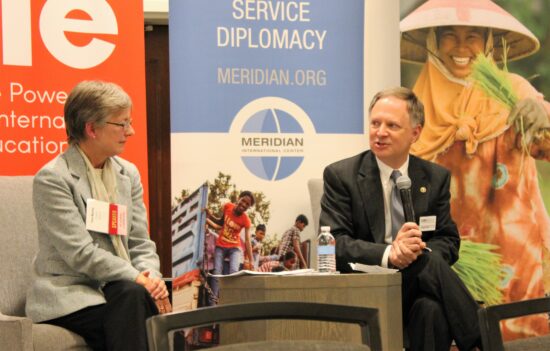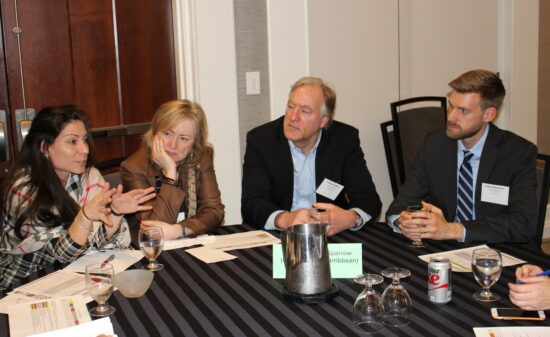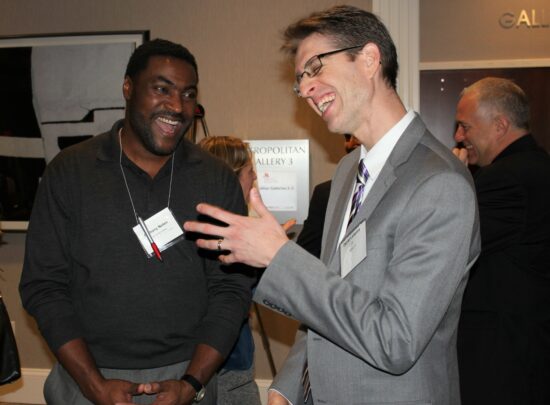By Lola Pak, Program Manager, Communications and Marketing, Global Ties U.S.
On November 8, Global Ties U.S. hosted the National Programmers Workshop in Washington, DC for a full day of breakout sessions, keynote speeches, and networking for the National Program Agencies and U.S. Department of State.

Teta Moehs (left), Deputy Director of the Office of International Visitors, Bureau of Educational and Cultural Affairs, and Daniel Valle (right), Chief Operating Officer of Global Ties U.S., open the workshop with a Q&A panel.
Over 200 representatives from organizations such as Cultural Vistas, World Learning, FHI 360, the U.S. Department of State, and more convened at the Washington Marriott Georgetown.
The goals of the workshop were outlined in the breakout session topics: “Managing Responses to Emergencies,” “Raising the Profile of the IVLP,” “Crafting Creative, Engaging, and Balanced Programs,” and “Programming for People with Disabilities.”

During the breakout sessions, attendees discussed ways to craft programs that are more creative, engaging, and balanced.
“We need to make spaces accessible. How can you literally interact with others when you can’t navigate a room?” said Keri Gray, Director of Rising Leaders Initiatives at the U.S. Business Leadership Network, during the session on programming for people with disabilities.
Rick Ruth, Senior Advisor in the Office of the Assistant Secretary, Bureau of Educational and Cultural Affairs, U.S. Department of State, delivered the morning keynote speech.
“We do a great deal at the Bureau of Educational and Cultural Affairs, and we do it all together,” he said. “Exchanges move people to move values and ideas.”
During lunch, Linda Staheli, Founding Director of Global Co Lab Network, introduced the Citizen Exchanges Circles model for the Global Ties Network to leverage as a way to engage with participants and programmers.
“Citizen Exchange Circles are a way to strengthen relationships between participants, from nominations to training to feedback and evaluation,” she explained.

Networking was a major component of the National Programmers Workshop, occurring throughout the event. Anthony Nolen (left) of the Bureau of Educational and Cultural Affairs, laughs with Daniel Labarca of the Institute for International Education.
Later in the afternoon, Timothy Kane, Associate Director for Inclusion Initiatives at the George Washington University, delivered a two-hour all-hands session titled “Unconscious Bias: When Good People Contradict Their Own Values.” Attendees were asked to prepare for the session in advance by taking the Implicit Bias Test developed by Harvard University.
The session, which alternated between Kane speaking and attendees breaking into groups, helped uncover the unconscious bias everyone has based on their personal background and experiences. The goal was to use the findings to create more diverse, inclusive programming.
“Together we are wiser,” Kane said. “Organizations are more nimble and wise when their staff are diverse.”
